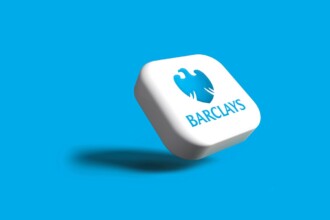Cable Company, which provides services for the verification and assessment of potential financial risks, announced the holding of a round of attracting Series A investment funds.

Source: Pixabay.com
The cost of this round of financing is $ 11 million. New investments increase the value of the company to more than $ 16 million. The round was led by Stage 2 Capital and Jump Capital, with the participation of existing investor CRV.
The new financing provides the firm with the opportunity to expand the staff of specialists in products, engineering, data processing, and market entry. Investments will also help accelerate the development of technological solutions. Natasha Vernier, co-founder of Cable, says that as of today, the company has implemented only 1% of the products and functions provided in the development roadmap.
The Cable platform provides automated verification and risk assessment. The company’s offer complements the activities of many financial crime prevention service providers. The platform allows banks and other financial organizations to track all accounts to receive real-time information on the degree of effectiveness of implemented failure control tools designed to counter illegal activity.
Cable also offers supervision of fintech partners of financial institutions. Most fintech companies do not have a banking license.
At the end of last year, the company’s revenue increased fivefold. The firm has attracted new clients over the past two years, including Axiom Bank, Quaint Oak Bank, and Griffin in the banking industry, as well as fintech and crypto companies, including Tide and Ramp.
Natasha Vernier says that fintech firms borrow a license from banks. Financial institutions in the context of this interaction are interested in effective control over the partner. Cable offers a solution to this problem.
Natasha Vernier is convinced that as the banking industry develops, the range of financial management options for consumers will expand. In her opinion, as part of this process, banks will cooperate with companies from other fields, which is why the issue of control is being updated. The co-founder of Cable is convinced that the current moment is perfect for attracting new investments and accelerating the firm’s development process.
Natasha Vernier emphasizes that state regulators are also interested in high-quality control. According to her, in the United States, during the expansion of the scale of payments in real-time, the number of financial crimes will increase. She said that crimes of this category are a problem worth $ 4 trillion.
Banks and fintech companies, according to Natasha Vernier, need to improve control to reduce risks. The list of controls includes customer identity checks, screening, transaction monitoring, and sanctions.
More than a decade ago, banks received fines from regulators for ineffective financial control. After the appearance of monitoring service providers, the number of penalties decreased, but some financial institutions still face them.
Natasha Vernier says that the traditional practice of banks and fintech companies provides for manual verification of the effectiveness of controls on the example of several accounts. Cable has automated this process and brought its scale to the maximum.
Residents of the United States reported to the Federal Trade Commission that at the end of last year, the total amount of funds lost as a result of financial fraud amounted to $ 8.8 billion. This figure is 30% higher than in 2021.
As we have reported earlier, in UK Ransomware Payments Nearly Double in One Year









